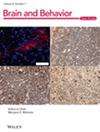About Sugar Addiction
Abstract
Purpose
Sugar addiction, characterized by excessive cravings for high-sugar foods, poses a significant health challenge in modern society. The parallels between sugar and drug addiction have attracted attention, prompting extensive research on the neurological mechanisms involved.
Method
This review summarizes recent research on sugar addiction and its impact on health.
Finding
High-sugar consumption activates the brain's reward circuits—a positive reinforcement mechanism—including the dopamine and endorphin systems, which are associated with satisfaction and pleasure. Chronic exposure to high-sugar foods may alter these systems, leading to heightened cravings and a dependence on sugar. Appetite is regulated by complex neural pathways, including those in the prefrontal cortex, amygdala, and hypothalamus. Therefore, dysfunction of these areas may lead to excessive sugar intake and impulsivity. Sugar addiction also negatively affects physical health, with high-sugar intake strongly associated with obesity, diabetes, cardiovascular diseases, and other health problems. Sugar addiction can lead to weight gain and metabolic disorders, which in turn increase the risk of developing these diseases. Pharmacological and psychological interventions are the primary treatment for sugar addiction. Certain medications can reduce sugar cravings and dependence; however, their long-term efficacy and side effects require further investigation. Cognitive behavioral therapy can also help individuals change their attitudes and behaviors toward sugar, thereby enhancing their self-control.
Conclusion
In summary, sugar addiction is an increasingly prevalent problem involving multiple aspects of the nervous system, behavior, and health. Further research on sugar addiction will enhance understanding, inform preventive and treatment measures, and elucidate the mechanisms underlying sugar addiction.


 求助内容:
求助内容: 应助结果提醒方式:
应助结果提醒方式:


